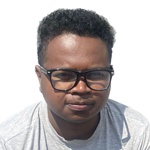
Continuing and Accessible Education -Strategies for the Future
SDG 4

About the Session
Africa needs to revise its educational systems more than other continents. Educational systems inherited from colonialism remain almost unchanged under the pretext of maintaining a “certain quality” of education, but it often does not meet the demands of a social nature. Today, the key problem of African countries is illiteracy.
The quality of a person’s life is determined by the state of their educational culture, desire to acquire new knowledge and apply it in professional activities. It is not always enough to have aspiration and desire to realize their right to education. Considering the availability of education in a particular country, it is necessary to analyze the state education policy, its political and social features.
If education is the key to economic development, it is equally important in defining the values that will make Africa a united, dynamic and forward-looking continent tomorrow. A comparative analysis of the educational policies of developed countries in the context of developing recommendations for building education systems in African countries is a key task the steps towards which should be taken within the framework of the thematic session.



